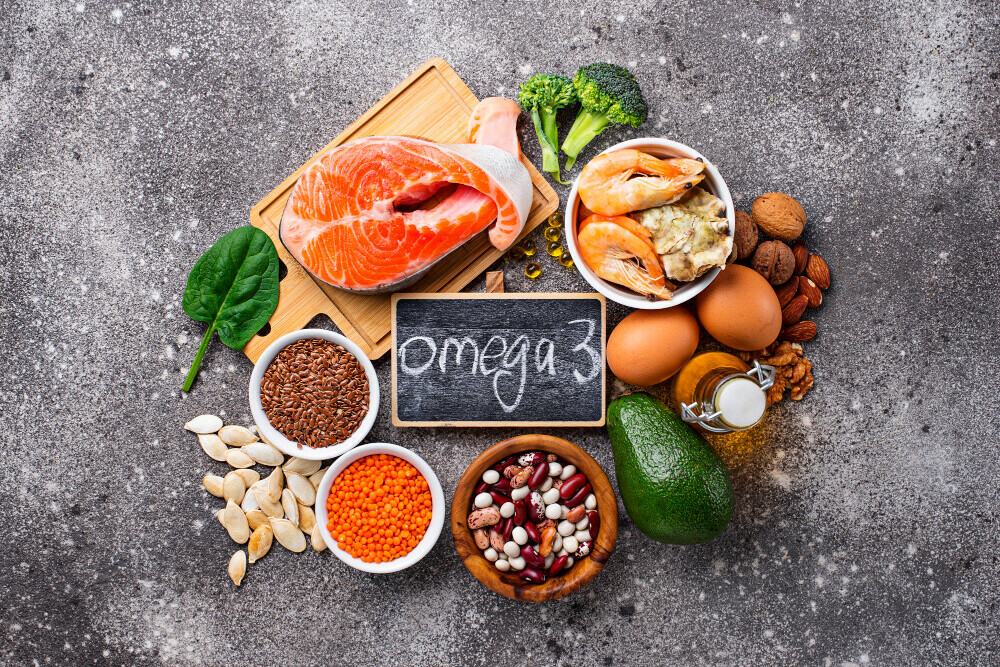Power Play: Stoking the Fire of Nutrition for Athletic Performance
Imagine your body as a high-performance vehicle. In the same way that a race car requires the correct type of fuel to operate at peak capacity, your body needs proper feeding. You need to respect nutrition and the demands of an intensive athletic programme to perform physically at a high level. I’ll walk you through the significance of nutrition for athletic performance and how it can be your ally in achieving your athletic goals.
Athletes push their bodies to the limit, increasing the need for more calories, proteins, carbohydrates, fats, and essential vitamins and minerals. I’ll explain how these elements support athletic performance and recovery. For example, carbohydrates are the primary fuel for high-intensity exercises, while proteins are crucial for muscle repair.
Beyond foundational nutrients, I’ll also discuss the need for micronutrients like iron, calcium, and electrolytes, which play pivotal roles in oxygen transportation, bone health, and maintaining fluid balance. It’s not just about the quantity but also the quality of these nutrients and their timing of intake that can make a significant difference.
The relationship between diet and exercise is reciprocal. Good nutrition enhances training adaptations and helps with recovery. In contrast, inadequate nutrition can result in subpar performance and prolonged recovery times. Nutrition is also fundamental in maintaining a robust immune system, reducing the occurrence of illness, which can keep you off the track or away from the gym.

This introduction brings us to the following important consideration: designing a nutrient-rich diet plan tailored to athletes’ needs. It’s not a one-size-fits-all approach; it requires a comprehensive understanding of an individual’s lifestyle, training demands, and personal goals.
Contents
Designing a Nutrient-Rich Diet Plan for Athletes
Athletes’ bodies are like high-performance vehicles, requiring quality fuel to operate efficiently. A nutrient-dense diet is critical for supporting vigorous training and promoting optimal health. This section explores the key components of a diet plan tailored specifically for athletes. It offers insights into how to align this with an individual’s training regimen.
Every athlete is unique, so there’s no one-size-fits-all on diet plans. It’s essential to consider factors like the type of sport, intensity of the training sessions, duration, frequency, and personal metabolic responses. Understanding these variables helps shape a meal plan that provides the necessary energy but also aids in achieving specific performance and body composition goals.
Meal timing is a game-changer in the world of sports nutrition. Consuming the right foods at the appropriate times ensures that the body has the required energy for training and sufficient nutrients for recovery. It’s a balancing act, where timing meals and snacks can significantly affect how an athlete performs during a workout and recovers after.
And what about supplements? While they can be helpful, they’re not a substitute for a well-balanced diet. Athletes need to rely on natural food sources as a base for their nutrition. Where diets may fall short, supplements can fill the gaps, and always under professional guidance to ensure safety and efficacy.

Remember, a diet rich in variety and high in quality nutrients provides the best platform for athletes. Moving forward, the relationship between an athlete’s diet and their ability to overcome common nutritional challenges will illuminate how to navigate these obstacles effectively.
Overcoming Common Nutritional Challenges Faced by Athletes
Athletes face unique nutritional challenges that can impede their performance if not managed properly. Energy deficits, nutrient deficiencies, and a reduced training response can arise when a diet is too restrictive or unbalanced. Here’s what I see as the real roadblocks in an athlete’s nutrition and how to overcome them.
First on the list is extreme dietary regimes. It’s tempting to jump on the latest fad diet bandwagon, hoping for quick results. However, most diets lack the necessary balance of nutrients an athlete requires. The key is to focus on a diverse diet that includes a variety of foods to cover all nutritional bases.
Then there’s the ever-present issue of weight and body composition goals. Athletes often strive for an optimal body weight and composition to maximize their performance. However, achieving these goals should never come at the cost of nutritional health. Pursuing these objectives with a plan that includes adequate caloric intake and a balance of macronutrients is critical.
It’s not uncommon for athletes to discover they have nutrient deficiencies during their regular check-ups. Iron, calcium, and vitamin D are typical trouble spots. Addressing these concerns involves a combination of dietary adjustments and, sometimes, supplementation under professional supervision.
Finally, athletes with dietary restrictions and allergies must be extra cautious. Whether it’s due to personal choices like vegetarianism or intolerances like gluten or lactose, the challenge is ensuring you meet all nutritional requirements. A thorough plan developed with a registered dietitian can ensure no nutrition gaps.
Transitioning into diet, recovery, and injury prevention, it’s clear that nutrition doesn’t just fuel performance; it also supports the body’s healing processes. I’ll explore how athletes can use nutrition to aid muscle repair, reduce inflammation, and strengthen their immune systems, which are crucial for staying healthy and ready for competition.
The Intersection of Diet, Recovery, and Injury Prevention
If you’re serious about sports, you know that the time spent off the field is just as crucial as the time on it. Recovery isn’t merely a time-out; it’s an active process where good nutrition plays a crucial role. Think of your food as part of your body’s repair kit, informing your body’s recovery process and tissue regeneration.
Muscle repair is non-negotiable. After intensive workouts, your muscles experience micro-tears, a normal part of building strength. However, your body can’t repair these effectively without the proper nutrients. Protein is your muscle’s best friend here. Amino acids, the building blocks of protein, are essential for muscle repair. Carbohydrates also play a role in replenishing glycogen stores and fueling your muscles.
Inflammation can be the enemy of performance. Yet, it’s a natural part of the body’s response to intense physical demands and injuries. Incorporating anti-inflammatory foods, omega-3 fatty acids found in fish, flaxseed, walnuts, and antioxidants from colourful fruits and vegetables into your diet is KEY to keeping it in check.

Your immune system is your silent teammate, guarding against sickness that can sideline you. To bolster immunity, focus on vitamin-rich foods. Vitamins A, C, D, and E are particularly vital. Don’t forget minerals like zinc and selenium, often found in nuts, seeds, and lean meats.
Post-training or competition, the right foods can enhance recovery. Carbs and proteins are essential, but don’t ignore the electrolytes lost through sweat. A balanced shake or a well-rounded meal can provide a quick solution when solid food isn’t appealing or practical.
As this section concludes and we transition to long-term strategies, remember that what works today may not be as effective tomorrow. Your body changes, and so will your nutritional needs. What remains constant is the need for a plan that includes attention to diet, recovery, and injury prevention for sustained success.
Nutrition for Athletic Performance: Strategies to Keep You At the Peak
As an athlete, your performance isn’t just about what you do in the gym or on the field. It’s also about the decisions you make at the dining table. Long-term nutritional strategies are crucial for sustaining peak performance, and here’s how you can ensure your diet continues to fuel your athletic aspirations.
First, recognize that your nutritional needs will fluctuate. An off-season diet might look different from a competition-season diet, favouring recovery and muscle maintenance over the quick energy required for competition. Don’t be afraid to adjust your food intake to suit your training demands; staying flexible is vital.
Next, consider the bigger picture: career longevity. Your diet can influence your current performance and your athletic future. Incorporate foods rich in antioxidants and omega-3 fatty acids to support joint health, and prioritize protein to maintain muscle mass throughout your career.
Keeping abreast of the latest research in nutrition and dietetics is also vital. Dietary science evolves constantly, and what was optimal five years ago may be outdated. I recommend reading reputable sports nutrition publications and attending seminars or webinars to stay informed.
There may be a time when you need to seek professional advice. A registered dietitian or sports nutritionist can offer tailored advice that fits your needs, lifestyle, and preferences. Expert guidance can be a game-changer when dealing with a performance plateau or navigating dietary restrictions.
Remember that optimal nutrition is a marathon, not a sprint. It requires dedication, knowledge, and, sometimes, professional help. By committing to a long-term nutrition strategy that adapts to your changing needs, you’re not just eating well for the present; you’re investing in the success and longevity of your athletic career.
Resources:
Nutrition and Athletic Performance
https://medlineplus.gov/ency/article/002458.htm
Nutrition for Athletes
https://www.medicalnewstoday.com/articles/nutrition-for-athletes




February 18, 2024 @ 7:24 am
I have recently been researching nutrition and diets for recovery as I am starting to get back in to my old workot rutines which I haven’t done for many years due to different reasons.
This article has both jogged my memory on a few things but also given me some new insights to use this time around!
In your opinion is there an optimal time to eat before workouts and after to help the body recover? I used to do 30 minutes before and straight after, just wondering if you had an opinion on this?
Thanks for this article, I’ve found it very helpful in my research.
February 18, 2024 @ 11:37 pm
Hi Ryan,
Thanks for adding to the discussion. Glad this article has added some insight for you.
I don’t have a strict opinion about eating before a workout, but some of the research I read in the process mentioned consuming an appropriate amount of carbs 1-2 hours beforehand depending on the strenuousness of the exercise.
Cheers
March 5, 2024 @ 5:33 am
Hey thank you a lot for this post!
I would like to become more active and try out various forms of exercise including ones which require more energy along with effort however was unsure of what changes to ones diet is required however your post perfectly summed up everything about nutrition and intensive activities!
Thank you for putting this essential information out there and have a great day!
March 8, 2024 @ 10:28 pm
Thanks, Sariya
You may find some more ideas regarding nutrients in my post about Glycemic Index meal plans:
https://healingepiphany.com/gl…
All the best